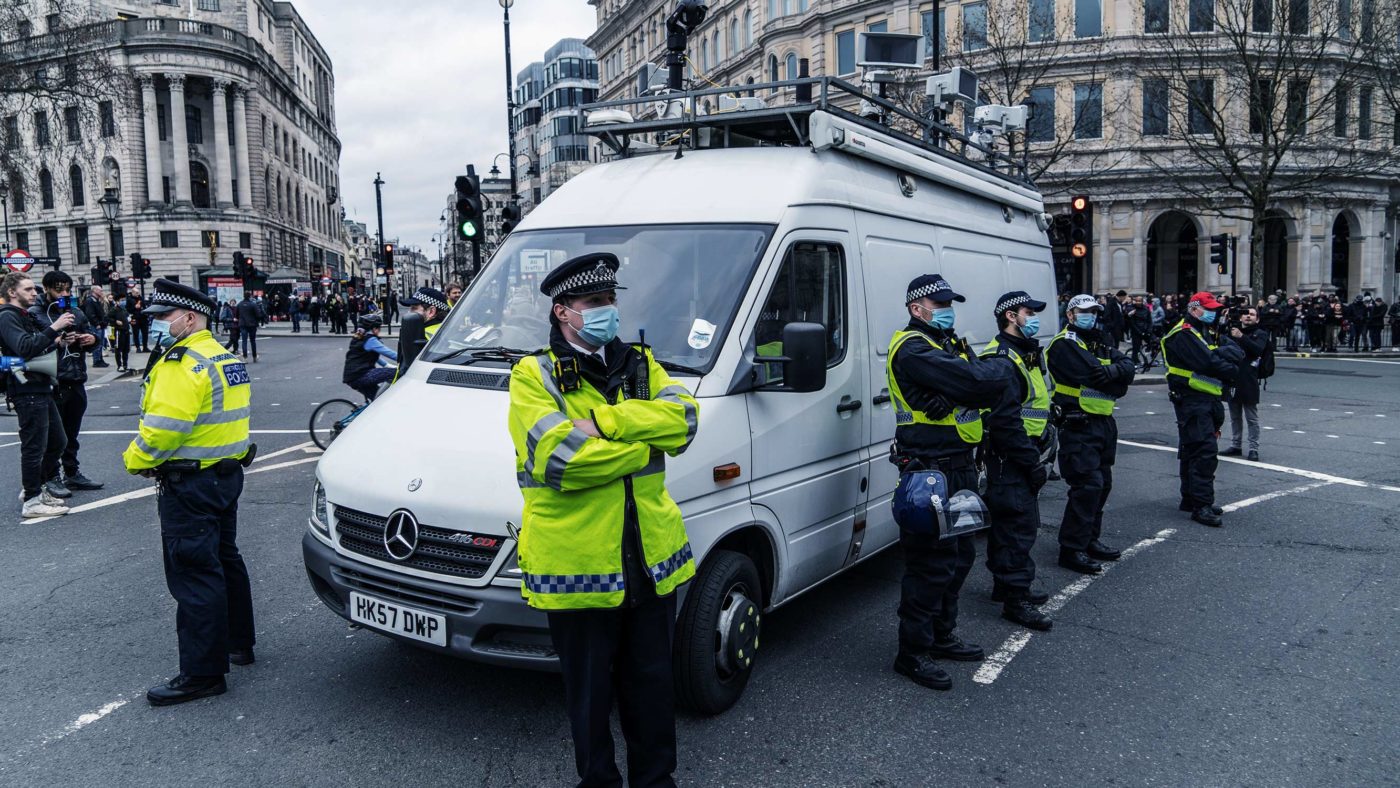Last week, when I wrote about the need to reform the way we do public order policing, I noted in passing that the British public take a much sterner stance on maintaining public order than much of the political class.
That was in relation to police tactics rather than the rules governing protest, but it nonetheless does make it seem rather unlikely that the new Police, Crime, Sentencing and Courts Bill is going to spark the sort of national backlash some of its opponents are hoping for.
Moreover, even if the bill were somehow halted, it would be very simple for this government or a future one to revive its proposals regarding control of protests as soon as we are subjected to the kind of deeply disruptive tactics employed by Extinction Rebellion (‘XR’) in 2019.
Whilst recent events in Bristol have naturally focused minds on actual riots, critics of the Government claim that the new proposals are an assault on the right to ‘peaceful protest’. But that phrase covers a broad range of behaviour. At one end, standing somewhere waving a placard. At the other, blockading vital public infrastructure. There is no good reason to treat these two things as the same phenomenon.
The most absurd example of this was when activists were setting up blockades and presuming that they could dictate who could or could not access a hospital. But it’s the a similar story when they’re shutting bridges or, to select one high-profile example from last summer, pissing about on top of Tube trains.
Of course, the bill doesn’t confine itself to mass action. One feature of it is that it will extend police powers to demonstrations of just one person. But if you’re their target, a single man or woman with a megaphone can be extremely disruptive or even – to use the word that has got critics riled – ‘annoying’.
To what extent is “the right to protest and express yourself”, as the BBC phrases it, actually a protected right to immiserate others and to disrupt their lives and businesses? Let alone to mount coordinated attacks on public infrastructure which in 2019 cost the taxpayer £15 million in policing alone?
The PCSC Bill suggests that it is not, and I suspect the public will agree. Taxpayers have the right to expect both their freedom and their property to be vigorously defended by the police.
New powers won’t be enough on their own. They will need to be accompanied by new tactics and, ultimately, a greater willingness to intervene swiftly and decisively against efforts to set up blockades and similar disruptive tactics. Ministers will also need to make sure that such action is actually followed up by detention and tougher sentences – simply being picked up and released just gives individual protesters some good photos and a little revolutionary cachet.
It will also make it more important than ever that the police shake the perception that they are not even-handed in their treatment of different protests. The determined dispersal of the Sarah Everard vigil has been contrasted with their more lenient approach to other recent protests, and last year one force explicitly ‘facilitated’ a BLM action whilst insisting that counter-protests were prohibited. This can’t go on.
However, the Government’s power to drive change in this area is limited by the consensus on protecting the independence of the police in operational matters – although we can’t rule out this consensus coming under pressure in future. If politicians such as Priti Patel and Sadiq Khan think they are going to be held politically accountable for police conduct, pressure for more control over it will surely follow.
The Home Secretary in particular might be concerned that public perceptions of this legislation will be shaped to a great extent by its on-the-ground application, over which she has little control.
On the other hand, the scope granted for police discretion is one of the best defences against the more hysterical attacks on the bill. It does not mandate sweeping crackdowns on protests; rather, it gives the police a bigger and more powerful selection of tools for countering disruptive tactics on a case-by-case basis.
After a year in which their conduct has come under close scrutiny, the PCSC Bill gives senior officers a chance to win back public trust – if they prove themselves robust and even-handed in preserving order and minimising disruption to normal life. If not, they risk the voters, and a future government, taking a much closer interest in their operations.
Click here to subscribe to our daily briefing – the best pieces from CapX and across the web.
CapX depends on the generosity of its readers. If you value what we do, please consider making a donation.


